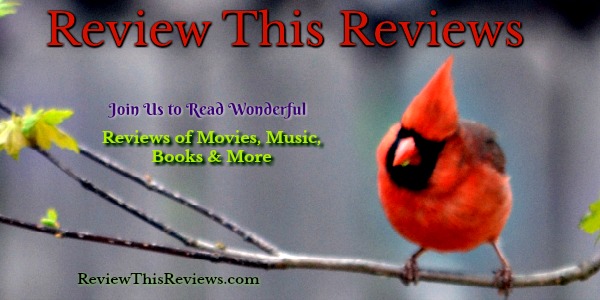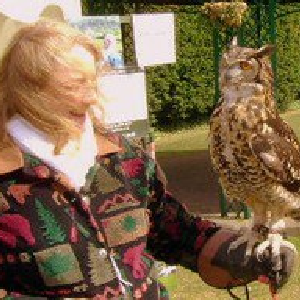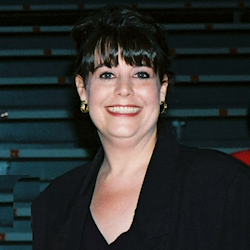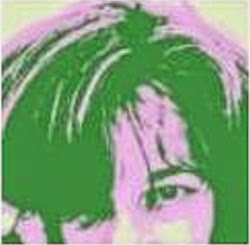Writers Need to Use Precise Words
Words are the building blocks writers use to create their books, articles, and blog posts.
In this post I will introduce you to three word books every writer needs to have for reference, not counting the dictionary you probably already have. These are the books I consult on a daily basis as I write. Do you have all of them yet? If not, it's time to get them. Between them you will always be able to find the right word for your writing project. I use all the books in the photo, but have only reviewed the three that are still in print. If you purchase from links on this page, I will get a small commission from Amazon, since I am an affiliate.
 |
| Image ©
B. Radisavljevic |
1. A Quality Thesaurus

The first Thesaurus I normally consult is the Oxford American Writer's Thesaurus. I have reviewed this one thoroughly in my blog post,
January 8 is Thesaurus Day, along with the old
Roget's Thesaurus. I used it because that used to be THE thesaurus, the only one most people used. There are more choices now. Roget's has been updated to dictionary form now, but you can still get a
modern version of Roget's that retains the original organizational format if you prefer it.
Whichever version seems more user friendly to you, a thesaurus is a must-have tool for any writer. If you are hobbling along with an old version, it's time to update.
2. Descriptionary
A descriptionary is a thematic dictionary. You use it when you know what a word is related to, but not the exact word. Words are arranged according to subject. For this review I'm using the
Facts on File Descriptionary, Third Edition.
Let's look at the
Publishing and Journalism topic, for example. First are general terms, such as
byline,
circulation,
feature, and other well-known terms and their definitions. Then come fun words -- slang and jargon not widely known outside the industry. Here are a couple of examples I found amusing:
Afghanistanism journalist's term for the avoiding of local controversy by focusing news coverage on distant lands.
blacksmith an uninspired but industrious reporter who simply pounds out stories day after day.
Also under the
Publishing and Journalism topic are
Book Publishing, Book Terms, and
Headline Types, all with their own lists of defined terms.
A descriptionary is just the book to have at hand if you are writing about a subject you are just beginning to explore that has a lot of its own jargon or technical terms that may not be familiar to you. My descriptionary covers
Animals and Insects;
Architecture;
Art;
Clothing;
Electronics;
Environment;
Human Body and Mind;
Language ( which far from just explaining grammatical terms, devotes several pages to drug and crime terms, urban street and rap slang, and words about words);
Law,
Magic and the Occult;
Medicine;
Military;
Music;
Occupations (where I found
Publishing and Journalism);
Performing Arts and Broadcasting;
Physics, Chemistry and Astronomy;
Religions;
Sports;
Tools;
Transportation;
Weapons; and
Words and Expressions You Should Know.
That last topic purports to sum up
the words every literate person should understand -- the ones you hear on the news or see in magazines, newspapers, and authoritative blogs. You probably studied most of them in secondary school and were tested on them in college entrance exams. Also included are terms like
according to Hoyle, Hoist with one's own petard, and
genie out of the bottle.
![descriptionary thematic dictionary writers library border=]() Besides providing just the topical words you need for works in progress, The Descriptionary also can give you new ideas for additional subjects to write about.
Besides providing just the topical words you need for works in progress, The Descriptionary also can give you new ideas for additional subjects to write about. Although I'm using the
Third Edition, the
Facts on File Descriptionary, Fourth Edition is now also available at Amazon. If you click through, you will see below the listing a tempting assortment of other word books for writers, one of which is
The Master List for Writers: Thesauruses, Plots, Character Traits, Names, and More. Whichever you choose, be sure you have one of these thematic word books close to your desk when you write.
3. Visual Dictionary
&
A visual dictionary is what I use when I've seen something but I don't know what to call it. Unlike a descriptionary, it only is useful for tangible objects that one can see -- not for ideas and abstractions. Think illustrated charts and diagrams arranged by subject. Up until now, I've only had my old 1986 edition of the
Facts on File Visual Dictionary. Its illustrations are black and white, but they do the job. Unfortunately, this edition lacks most of our new technology, but it was a great help when I was writing my blog post
Watch a Forklift Reach Truck Load a Lumber Truck. I knew nothing about construction or forklifts, except that I was pretty sure I was watching a forklift. I looked under the
Heavy Machinery topic and drilled down to
Material Handling. There I found my forklift reach truck and knew what to call it.
Today I started searching for something more up-to-date. I was delighted to see that DK had published a 2011 edition of its Ultimate Visual Dictionary. I have sold DK books for years.They combine gorgeous color illustrations with condensed information. The very detailed and cut-away illustrations all have their parts labeled down to the most intricate. I know that because I sat drooling over the 2000 edition at the library today and did not want to put it down. It is inviting and informative. It's easy to get lost in looking at all the attractive pictures. That means even children will want to look at it, but the information is on an adult level. I'll bet when you looked at the row of visual dictionaries above, this was the first to catch your eye.
I wanted to bring the book home with me. The one I own doesn't compare well to it.
What The Ultimate Visual Dictionary covers, it covers thoroughly. It does lack coverage of of some more common household objects that are more extensively covered in the
Facts on File Visual Dictionary and the
Macmillan Visual Dictionary, a volume I also looked at while at the library. It was a 2002 edition, and it was in color. Both books were written by Jean-Claude Coreil, so the topics are very similar.
Miriam Webster's Visual Dictionary is also written by Jean-Claude Coreil, so I'm guessing it has almost the same content as the
Macmillan Visual Dictionary. It is recommended for anyone at least eight years old. It does not have a "look inside" feature as the
Ultimate Visual Dictionary does.
One Million Things: A Visual Encyclopedia, is an entirely different animal than the other books. It will, for example, show you lovely pictures of leaves with a bit about each type, but it doesn't appear to show you the parts of a leaf in detail as the
Ultimate Visual Dictionary does. I am drawing my conclusions on
One Million Things solely by looking at the few pages Amazon shows me. It's a beautiful book and I think any one of school age and above would enjoy it and learn a lot from it, but after all the books and descriptions I've handled and read about today, the one I want to buy to supplement my out-of-date
Facts on File Visual Dictionary is still
The Ultimate Visual Dictionary.
Most of the books are used the same way. If you know the word and want to know what the object looks like, you use the index at the back to find the word in its visual context. If you know the topic area, you drill down more specific topics until you find the page and illustration that your word labels.
None of the books cover every subject and there is a lot of crossover.
I would recommend getting The Ultimate Visual Dictionary and one other. Then you won't miss much. Links to all the books except the
Facts on File Visual Dictionary, which
has its own text link
, can be found pictured at the beginning of this topic. If you write and don't have a visual dictionary, you could make good use of one. Why not get one today?
Never Be at a Loss for the Right Word
If you have a comprehensive thesaurus, a descriptionary, and a visual dictionary, you should be able to find most of the words you need. Then your brain will select the most appropriate one for your context. Sometimes our brains just won't bring the words we know and want to use to mind, especially as we grow older. These books deliver them back to our brains again.
I was also going to include three other books I use often --
The Synonym Finder and a
rhyming dictionary. They are helpful to have, but not as necessary as the ones I reviewed above. They are, however, in the photo of my well-worn books I used in the introduction
What reference books for words have you found most helpful? Please mention them in the comments. The comment box is just under the related posts, below. The sharing buttons are just below this last photo, which was designed to share on Pinterest. Why not pass this information on to other writers, students, or home school families?
Note: The author may receive a commission from purchases made using links found in this article. “As an Amazon Associate, Ebay (EPN) and/or Esty (Awin) Affiliate, I (we) earn from qualifying purchases.”






























